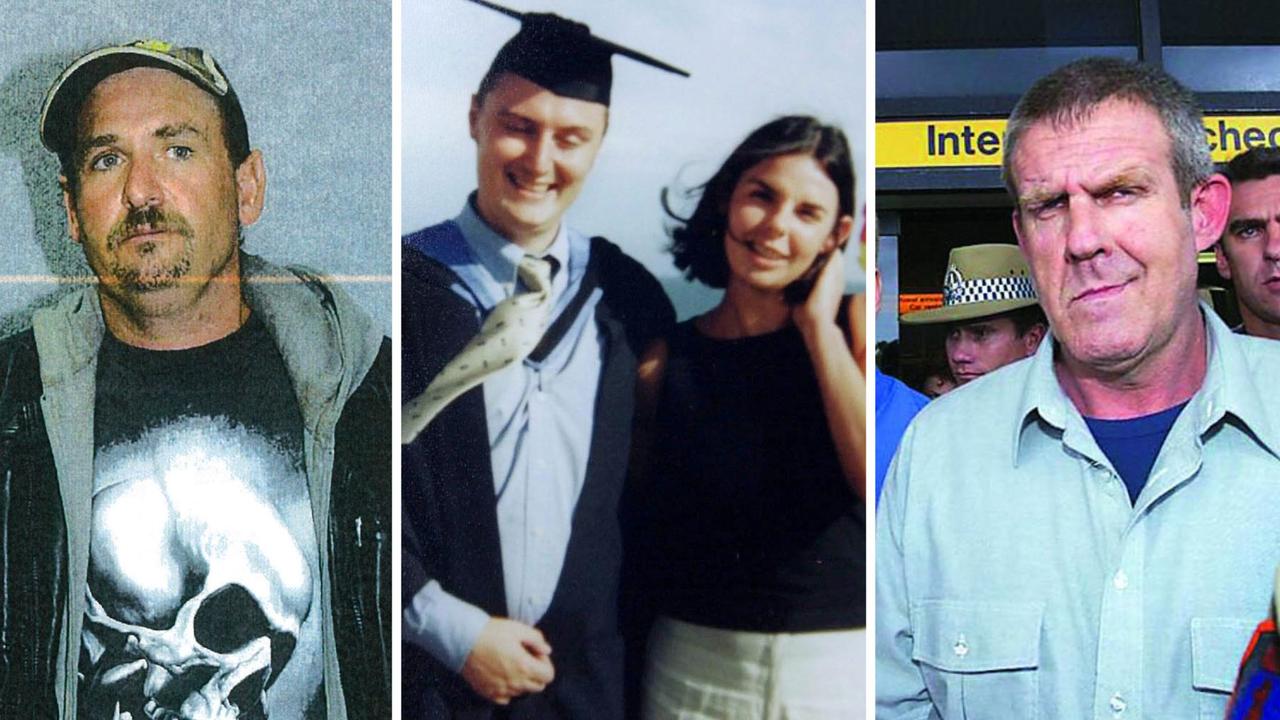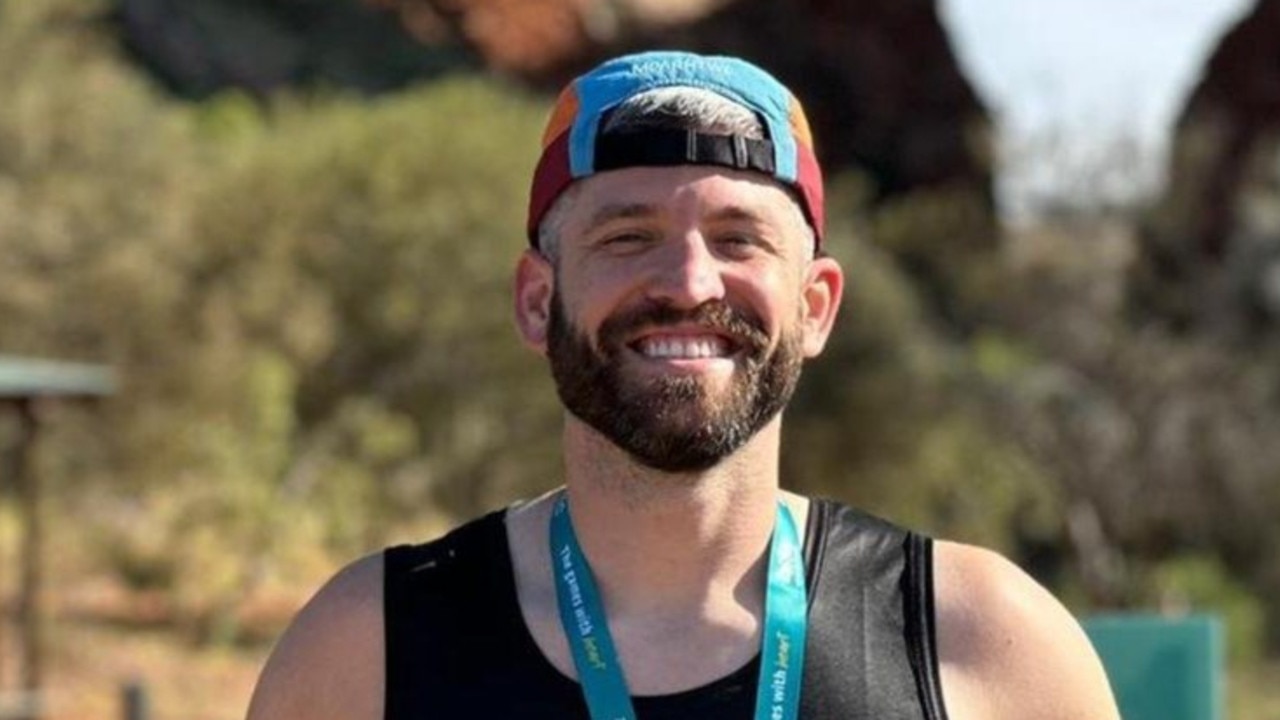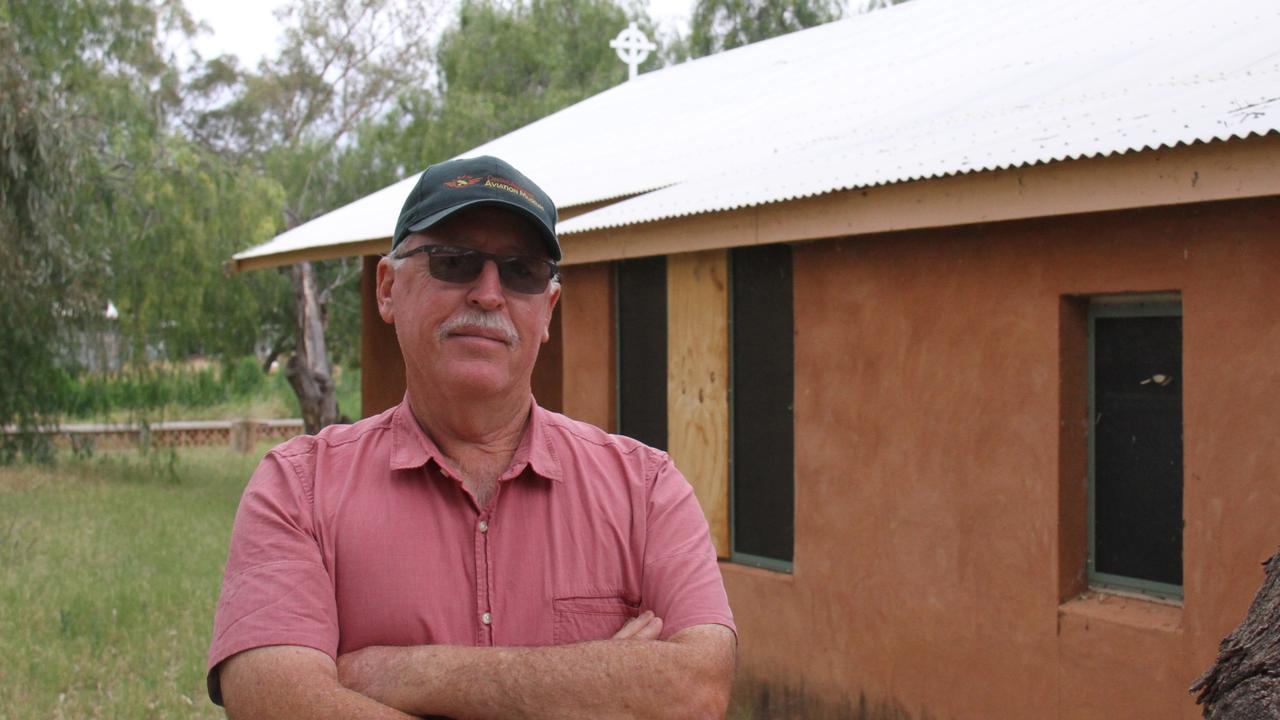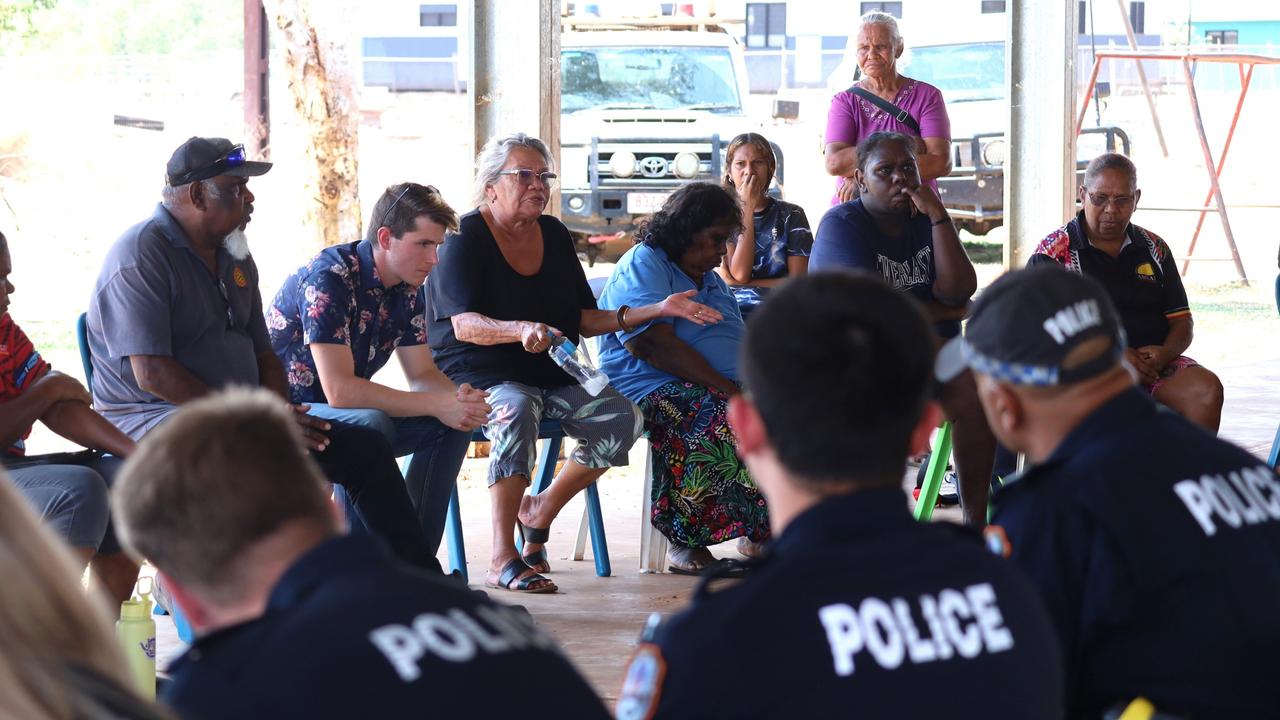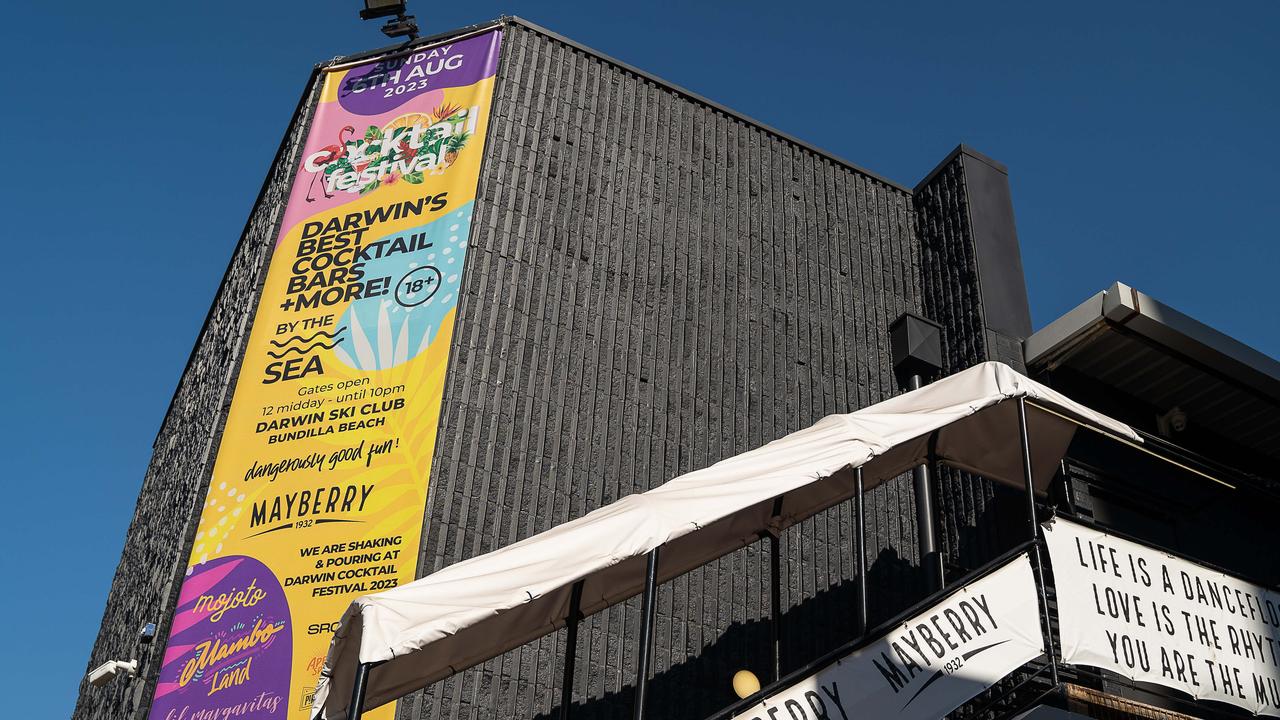Meet the educators nurturing the Territory's next generation
Teachers are some of the hardest working professionals around and with the 2022 school year now starting, meet some of the people educating our kids.
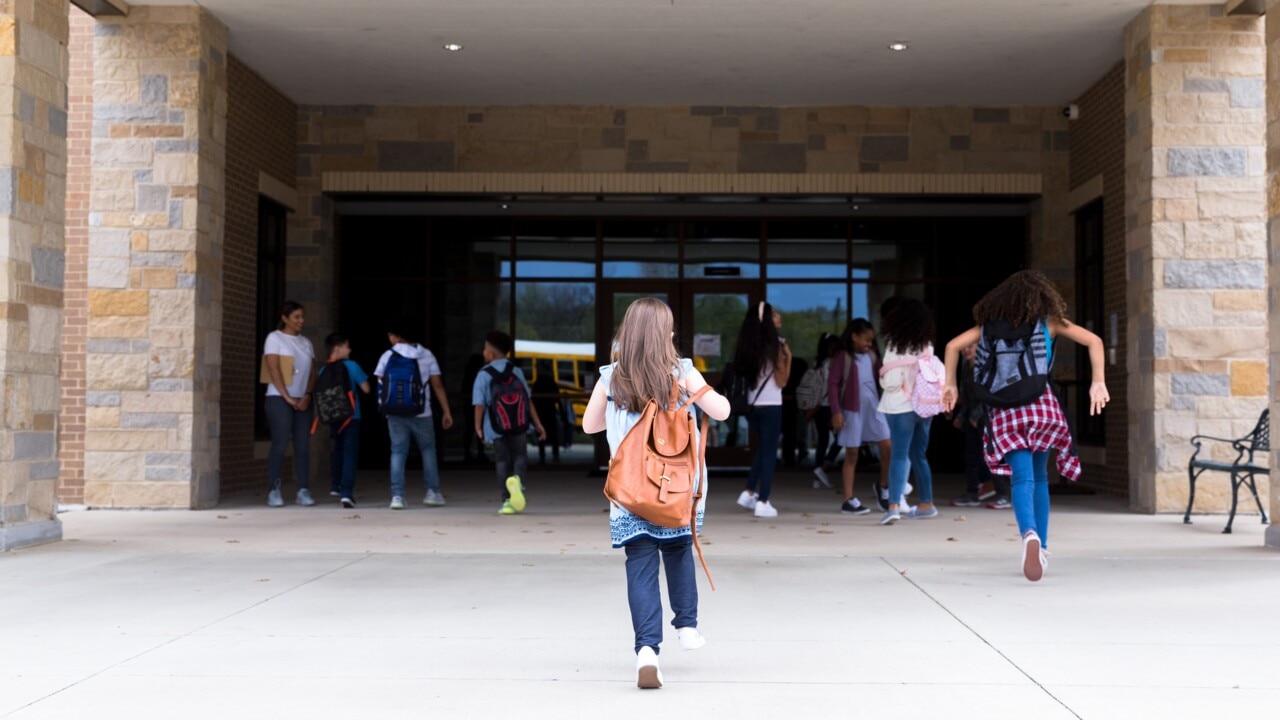
Northern Territory
Don't miss out on the headlines from Northern Territory. Followed categories will be added to My News.
THE Territory has one of the most diverse cohorts of students in the nation and to inspire them are thousands of educators eager to pass on their wisdom.
There are about 3250 government teachers across the NT.
Data from December 2021 showed about a quarter of the workforce is aged between 35 and 44, with 40 per cent of teachers working in schools in remote and very remote areas.
A whopping 71 per cent of NT government schools are located in remote and very remote areas.
The NT News’ Floss Adams and Raphaella Saroukos spoke with some of the teachers about to start the 2022 school year.Here are their stories.
Georgina Gilder
STRIKING the privilege of sitting in Georgina Gilder’s classroom for a whole school year would feel like all of your lucky stars had come true.
With strong teaching philosophies and ethics any parent or carer would dream of, you will find Ms Gilder at Ludmilla Primary School with about 24 kids doting around her feet.
Ms Gilder abides by a teaching philosophy where she believed students should feel safe in their environment.
“There’s a lot of students that school is their safe place and
She shows each child that they matter by “turning up every day, showing them that you care and giving them a safe place to take risks in their learning”.
After a long and exhausting but rewarding school year, Ms Gilder said her favourite part of teaching was at the end of the year.
She would celebrate with her students their learning growth and remind them how much they had “come out of their shells” throughout the school year.
“I go through their writing books with them and scope out the first page and say ‘hey look at your writing, look at what you were doing at the beginning of the year and look at it now’,” she said.
“They get a massive confidence boost because they don’t realise their progress a lot of the time.”
After teaching for six years, Ms Gilder felt “lucky” to be able to work in such an “absolutely beautiful” school like Ludmilla Primary.
“Being a teacher for the day for a day is an absolute privilege – we’ve got really beautiful kids,” she said.
“Some days are really, really tough and some days are really easy but being a teacher for a day is a lot of fun – there’s never a dull moment, let’s say that.”
Influential teachers Ms Gilder had as a school student in her rural NSW hometown marked positive lifelong impressions.
“I had really great teachers and role models when I was growing up and I always enjoyed working with kids,” Ms Gilder said.
Like most people who move to Darwin, the popular teacher was “only meant to be here for a year” … but just picked up keys to her very own place.
Eunice De Kock
FOR teacher Eunice De Kock, education is not just about the curriculum.
Originally from South Africa, Eunice had no intention of becoming a teacher, already coming from a long line of educators.
She graduated with a Bachelor of Science in Cape Town but spent the next two years in a career limbo.
After some encouragement from her husband, Eunice studied a postgraduate master’s degree and became a teacher.
“I was probably the best decision of my life,” she says. “I loved young people and I loved working in that environment. And it’s just ever changing.”
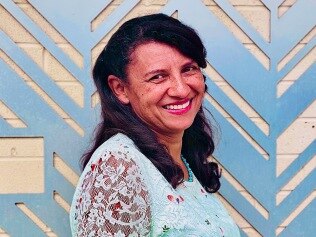
The next few years of Eunice’s life were spread across teaching in South Africa, the United States and in England. Her brother, also in England, suggested uprooting their families to Australia.
“We contacted the immigration agent and asked them where in Australia is there lots to do, lots of work and lots of space, lots of sunshine and nobody wants to go there. We made it in Alice Springs, and we’ve never left,” she says.
The family arrived in Australia in 2011. Eunice’s first teaching job in the Red Centre was at Araluen Christian College for five years before taking up a position at Centralian Senior College.
Eunice values the school’s – and by extension Alice Springs’ – multicultural mix of students and having the opportunity to help transition them from school to adult life.
“It’s just an incredible school. They build that bridge of lifelong learning that goes from Year 12 across to the next place of their lives,” she says.
For Eunice, one of the most important lessons she tries to convey to each student she educates, is the importance of character.
“I’m a math teacher … But for me it’s not just about that you can do the math or the fractions or the percentages or the parabolas, but it’s that you put your heart into it,” she says.
“That you’ve made the effort, that you’ve sourced the help and that you’ve tried really hard. These are all qualities of character that no one can take away from you.”
More than a decade after she arrived in the Northern Territory, Eunice intends to continue educating the young minds of Central Australia. She says the key to being part of a student’s success was going beyond the content of the curriculum.
“I teach the content but there is no value in content if you don’t reach the heart of the learner, if you don’t touch them with a sense of worth and value in who they are,” Eunice says.
Jackson Chandler
HE’S a librarian, a friend and mentor for Forrest Parade School students and is a trailblazer for young people with disabilities.
Graduating from Palmerston Senior College Special Education Centre in 2015, the opportunity arose for Jackson Chandler to become a valued staff member of the specialised school in Bellamack when Principal Annie Keighran got in touch with his father.
By the end of the same day, Mr Chandler was visiting his new workplace and very “keen” to start his new role as the school librarian.
“I mainly run the library, kids will bring the books in, I’ll scan them in and catalogue them in the system – I like my job,” Mr Chandler said.
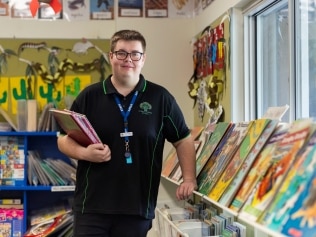
The 24-year-old has autism and asperger's syndrome and leads an exemplary life for children who have disabilities to look to as a beacon of inspiration.
Students look up to Mr Chandler and get excited when he enters a classroom.
He said the highlight of his job was visiting different classrooms and helping students when they need some assistance.
“Seeing all of the kids and being a part of the classroom is very unique and rewarding,” Mr Chandler said.
Principal Ms Keighran said Mr Chandler was an asset to the team and an amazing worker.
“One of our goals even before we opened was to have the opportunity to have an ex-Palmerston College Special Ed student come work with us,” Ms Keighran said
“He’s got great relationships with the children and staff – I see a very bright future for Jackson whether it is here or elsewhere.”
She said it was really important for families and students of the school to know what their pathways might be.
“So they’re seeing that everyday when Jackson is here – it really shows our students that if they chose, that could well be their pathway too,” Ms Keighran said.
Alex Payne
PRACTICAL, relevant education and the importance of students’ role in community are the key lessons remote teacher Alex Payne shares with his pupils.
Alex worked at an educational publisher for six years in Sydney before deciding to go into teaching.
He was part of the Teach for Australia program and had put down the Northern Territory as his preference for where to educate.
“I had worked here on a pearl farm for six months at Croker Island a long time ago and always wanted to go back,” he says.
Since coming to the Territory in 2019, Alex has worked at Shepherdson College in Galiwin’ku, where he teaches senior secondary students.
“We’re taking the students through towards the NTCET but also working with them to have really practical job-ready skills for future,” he says.
Alex also runs the school’s maritime program, through which students can complete a Vocational Education and Training certificate in Maritime Operations. He says some of the most critical parts of teaching remote students is focusing on practical skills and connection to culture.
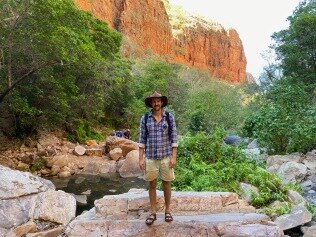
“Teaching needs to be relevant to the students’ lives. You can’t just pluck stuff out of the curriculum and expect them to engage with it,” he says.
“The real key is looking at skills and knowledge that will be relevant and interesting to remote Indigenous students.
“We have a strong focus on two way education: preparing students to be successful in western pathways, career pathways but also to be confident and important community members in their own culture.”
His advice to anyone hoping to teach in remote parts of the Territory is listen and engage with the local community.
“Be ready to listen to the community and willing to adapt your ideas and your teaching practice to what the community really needs,” Alex says.
“It’s an experience that I’ll remember for the rest of my life. I’ve really enjoyed being able to immerse myself in the community on Elcho Island.”
Back to school
The back to school plan includes a number of measures to best protect schools against Covid including compulsory masks from year 3 and ventilation at to control air flow.
Education Department chief executive Karen Weston confirmed plenty of contingencies had been looked at in case students or whole classes could not make it to school.
“There’s a commitment to keeping schools open for essential workers and vulnerable children,” Ms Weston said.
“We’re ready with the learning packs and online learning if we do need to have kids learning from home in a particular place so we’ve planned to respond to whatever scenarios come our way.”
Education Minister Lauren Moss said it was important to see kids back in school.
“There has been an incredible amount of planning that has gone into term one of the year ahead given the current Covid situation,” Ms Moss said.
“I know teachers and families will be feeling anxious but we have been dealing with Covid for two years now.
“It’s really important we get kids back in school next week. It’s important for their education development but also their social and emotional wellbeing.”
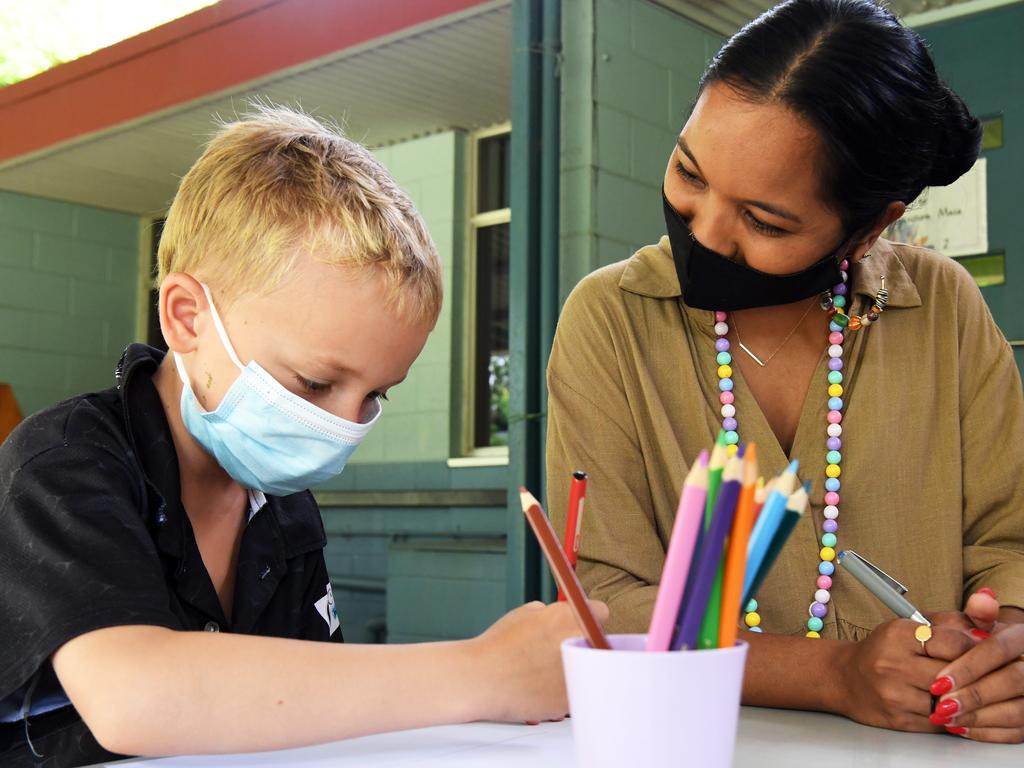
Australian Education Union NT secretary Adam Lampe said they were anticipating staff shortages and sicknesses as schools reopened.
“There’s people who aren’t starting on Monday because they have Covid,” he said.
“It’s all going to be a crap shoot.
“We’re just hoping it all doesn’t happen at the same time.”
“It will be a rocky start, but hopefully things will settle down.”
Mr Lampe said the union was anticipating some remote schools would close because of outbreaks, with isolated clusters in urban schools.
But he said cases in schools didn’t necessarily mean they should completely shut down.
“School communities are different and have their own needs.”
“We want schools open, kids have suffered from not having that face-to-face learning.”
Mr Lampe said the union would encourage all members to stay up to date with their vaccinations.
“We’ll be telling people to ‘get your booster as soon as you can’.”
Top tips for transition students and parents
KARAMA Primary School’s freshest cohort is bursting with excitement for their first year at school this year.
And principal Maria Albion has some wise words for their equally-excited, or perhaps anxious parents.
“Let children take the time to settle into their new class, get to know their new friends, develop a relationship with the teachers and become familiar with the school routines,” she said.
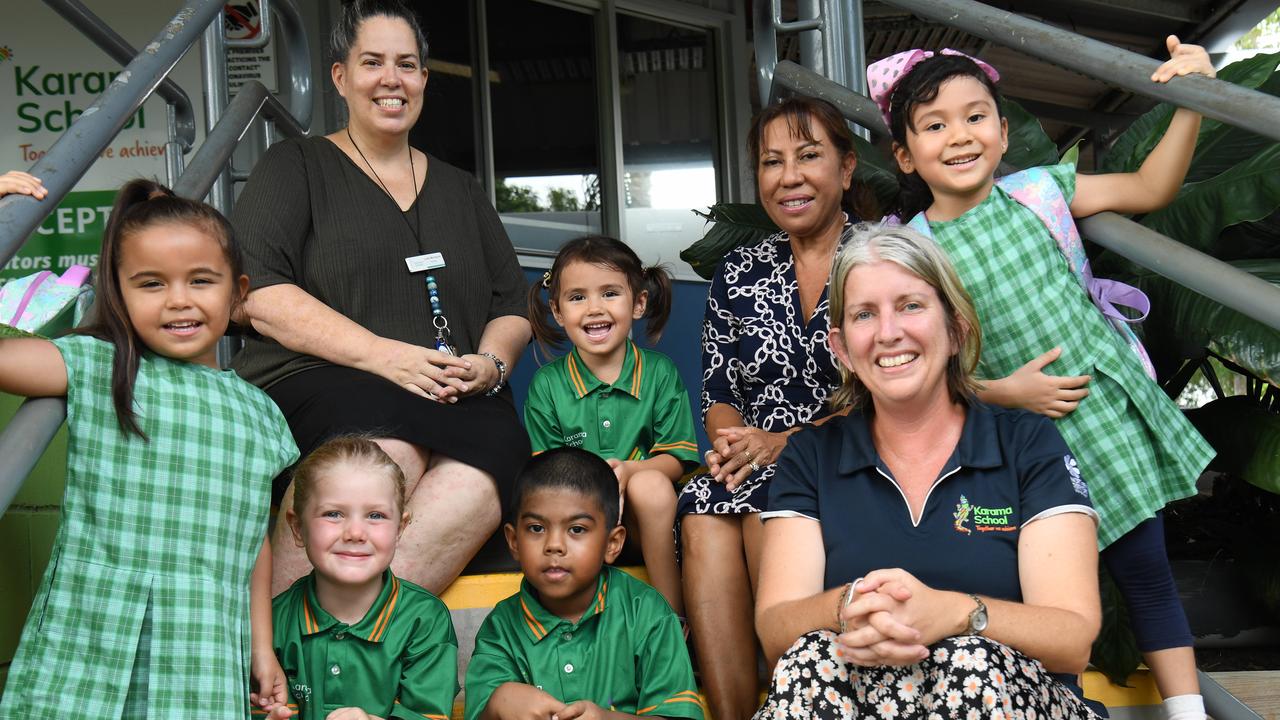
Mrs Albion said little bodies will get very tired in the first few weeks of school, but practising parts of their daily schedule will help.
“Have a practice of getting to school either by walking or car, and practice things like opening and closing lunchboxes.
“Encourage children to carry their own bags into the classroom and put their things away — encourage independence,” she said.
A Northern Territory Education Department spokesperson said though the last two years have been disrupted by lockdowns, this school year will hopefully be different.
“Territory students will return to school as planned this year.
“There is a plan to keep students and staff safe at school, based on evidence and guided by the latest health advice,” the spokesperson said
Parents needn’t worry about their childrens’ safety at school, the spokesperson said.
“Every school has their own Covid-safe plan which outlines how they will prevent, respond and recover from Covid transmission in schools.
“The best thing that parents can do to protect children is get their children vaccinated,” they said.
Originally published as Meet the educators nurturing the Territory's next generation



